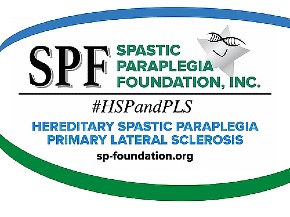October 17-18, 2016 Hyatt Regency Crystal City, Arlington VA
October 17th: The 2016 Rare Diseases and Orphan Products Breakthrough Summit kicked off today with record-breaking attendance, bringing together 600 people from all areas of rare diseases.
Over the course of the day, two themes emerged loudly and consistently as necessary for continued progress: collaboration and involving the patient in every step along the way.
In the opening keynote, parent advocate Kristen Gray (The Charlotte & Gwenyth Gray Foundation) shared her family's personal and inspiring story to try and cure Batten disease. Nearly one year to the day after learning their older daughter Charlotte had been diagnosed with this aggressive, degenerative and fatal brain disease, the Grays were funding a gene therapy trial. Charlotte became the first person in the world to enroll, followed by her younger sister. Kristen recounted how she was able to accomplish so much in so little time and asked attendees to find hope in her story: "We’re just going to keep fighting. For everyone.”
FDA Commissioner Dr. Robert Califf delivered the second keynote speech of the day. He spoke of the obligation of public health agencies to foster collaboration with patient advocates. Calling this an era of remarkable progress, he announced more than 20 new grants, totaling $23 million, to fund rare disease research in the coming years. Dr. Califf praised NORD and its Summit for marshaling the strengths of the rare disease community, saying, "This organization brings together so many different experts across the different spectrum and most importantly the patients and caregivers who provide the best resources in providing expertise."
Day One Breakout Sessions
Focus on Pediatric Diseases-David Arons (National Brain Tumor Society) spoke of the National Cancer Moonshot Initiative and ways for advocates to get involved before he departed for an event at the White House to release the Moonshot's 5-year plan. Noting that the process of achieving pediatric labeling needs to move more quickly, Lynne Yao, MD, FDA, said, "It takes a long time, currently about 9 to 10 years on average, to get from adult approval to pediatric labeling," adding there are now 637 products labeled with pediatric-specific information.
Potential Advances through Genetic Innovation-There is an explosion of studies in the gene study area with approximately 530 new Investigational New Drug applications.
The Challenges of Access and Reimbursement-Involve patients from the very beginning to save on time and costs. Karen Erickson (The Alpha-1 Foundation) detailed strategies to cut costs and increase compliance.
Collaborations Across Borders-The panel endorsed patient-driven registries to collect natural history data and suggested a global depository system, similar to those used for HIV and vaccine treatments, to expand access and care across the globe.
The Landscape for Investment-"This meeting is about bringing together the entire ecosystem and turning great ideas into new therapies for patients," said moderator Jim Geraghty. All members of the panel were scientists, and all expressed a commitment to investing in R&D that is truly meaningful and not simply a marginal improvement.
The Crucial Role of Data-All members of the panel, representing medical professionals, academics, drug developers and FDA, agreed this is exciting time in drug development. "We are sort of entering the era of patient-empowered medicine," said Matt Might.
